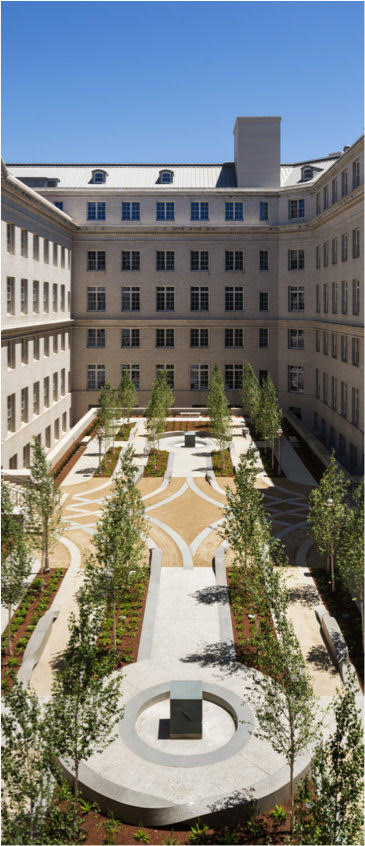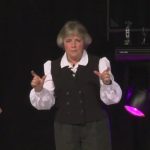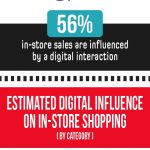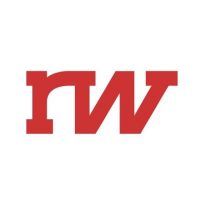How the GSA is taking Uncle Sam digital
How the GSA is taking Uncle Sam digital

The General Services Administration (GSA) is known as “Uncle Sam’s Landlord,” presiding over 300 million square feet of government property. But they are less known as a leader in introducing new technology into government. To find out more, we sat down with Denise Turner Roth, the GSA Administrator, and Hillary Hartley, the executive director of 18F, the GSA’s internal digital consultancy
ReadWrite: For those people who don’t know, give us a quick recap on the GSA.
Denise: So GSA is a federal agency charged with serving as the administrator backbone to the federal government. We manage about 50 billion dollars of bidding that occurs from federal agencies to private sector and then we also have what we call the technology transformation service. This is really supporting the government efforts to increase the digital approach to the delivery of federal services.
RW: That’s great, so tell me a little bit more about that?
Denise: So I’m going to turn over to Hillary. Hillary is actually one of our founders of what we call 18F and it was actually an effort that we launched out of the Presidential Innovations Fellows.
Hillary: Yes, the Presidential Innovation Fellows was put up in 2012 and it was really around the hypothesis that the government could attract the best and brightest technologists from industry into government. Essentially, to kind of inject them into projects and into agencies and departments where there were really amazing ideas that just needed a little help executing or figuring out the path forward.
So in 2013 we were fellows and at the end of our six months fellowship we were already thinking about the need for a more permanent team to work on technology. We were able to work together and create a team to do just that, and we became known as 18F. We launched in March of 2014 with about 15 people on staff at the time. We’re now approaching about 200 in 18F and we have about 30 fellows in this current class of Presidential Innovation Fellows. And our mission is to transform how the US Government builds, buys and shares technology.

Denise Turner Roth
RW: That’s very cool and with over 200 of those Fellows, I’m sure you have seen a couple of really cool ideas that have come out of this, as well a couple that probably surprised you as well.
Hillary: Sure, I mean with the fellowship program there are always really interesting things coming from agencies that are looking for a Fellow or a team of Fellows to help them kind of think about a new way, a new lens for a project. There have been some really interesting things around data-driven justice and police initiatives. The Fellows earlier this year stood up in a very short time vote.com, which has kind of expanded beyond just the website, which directs people to their local state website in terms of how they are registered to vote. Now it has extended from there to kind of partnerships with Facebook, using the API and direct folks to our website.
We also worked with the Department of Education working on something called the College Scorecard which started out as a presidential initiative from President Obama calling for a ranking of universities and colleges so that a perspective college students their families and their community and their advisors could get a better idea of kind of what the value of an educational institution really is. There’s a whole bunch of data posted by the Department of Education that has been public for a while but now they is, even more, data and it’s available in a public API and we built the College Scorecard website to go with it. It’s been an incredible tool for students and their advocates.
RW: Now, all of the stuff that you’re talking is really core to IOT and the Connected World which is this re-purposing and distribution of data which of course, leads to privacy and security and how you’re handling that data.

Hillary Hartley
Hillary: We’re essentially kind of a guidepost for our partner agencies in terms of trying to be leaders about getting to the cloud and thinking about privacy and security and GSA has done that in general across the agencies for years and being sort of first movers on things like that and the transformation service is absolutely leading the charge around transformation and around getting onto the cloud and into compliance. So we work very closely with agencies to make sure that we’re both in compliance and also kind of trying to be progressive about how we approach things like data.
Denise: President Obama has been very forward-leaning in his commitment to making the federal government a 21st-century government, and charging down this road of both a digitized government and modernizing the government overall. So it has been us having this global government-wide understanding and appreciation that we have these data sets that tell us about how people need government as well as what opportunities exist. That can be to help them improve their situation whether from a business perspective or a student going to school, or someone running for office and wanting more information about their campaign. It’s bringing together these data points that we have in different ways to make them more useful for how the government works with the American public.
RW: Now, it’s your job to be ruthless with taxpayer dollars and you look at other things like the government fleet and autonomous vehicles, so what is that going to mean for the GSA?
Denise: Yes, absolutely we are responsible for buying the fleet for all the governmental entities and then managing those vehicles. That gave us an opportunity to test changes with a higher efficiency vehicle or evaluating how people are actually using those vehicles or who is actually sharing vehicles to get from point A to point B. So we have these greats nuggets of information about how government employees work and we seek to utilize that in improving policy.
RW: It was great that you’re creating this great organization within the government and you touch technology, and well as government. And the great thing here is I am speaking to two women about technology, so are there any programs in place where you are doing any fellowships or programs to help women get into technology through the government?
Hillary: Inside 18F, we have a very strong commitment to inclusiveness and diversity and make it a priority for our recruiting and our referral network. We are making sure that we’re always thinking about that as we are recruiting and talking to people, and the places that we try to be seen and heard with regard to all of that.
Denise: Something that I would like to point out too is obviously as a governmental entity we’re trying to create pathways for diversity of thought and individuals. We have a program that is for students who are coming out of school or recent grads that are early in their career and trying to invite them into government employment. That is a great opportunity to see how GSA works because the emerging leaders actually move around our agency, and as you can see our agency touches a lot of areas. But what I would do for young people overall and especially young women, is that if there is an interest that they have in improving anything in the world around them, that technology is part of that future.
We have great ideas as American people, but we have seen great ideas become even better by applying technology solutions that help bring the data, the information all together in one place. So I would say our challenge if they think that they are not interested in technology, think about the world around them and what they want to improve and they will see the connection.
The post How the GSA is taking Uncle Sam digital appeared first on ReadWrite.
(66)













